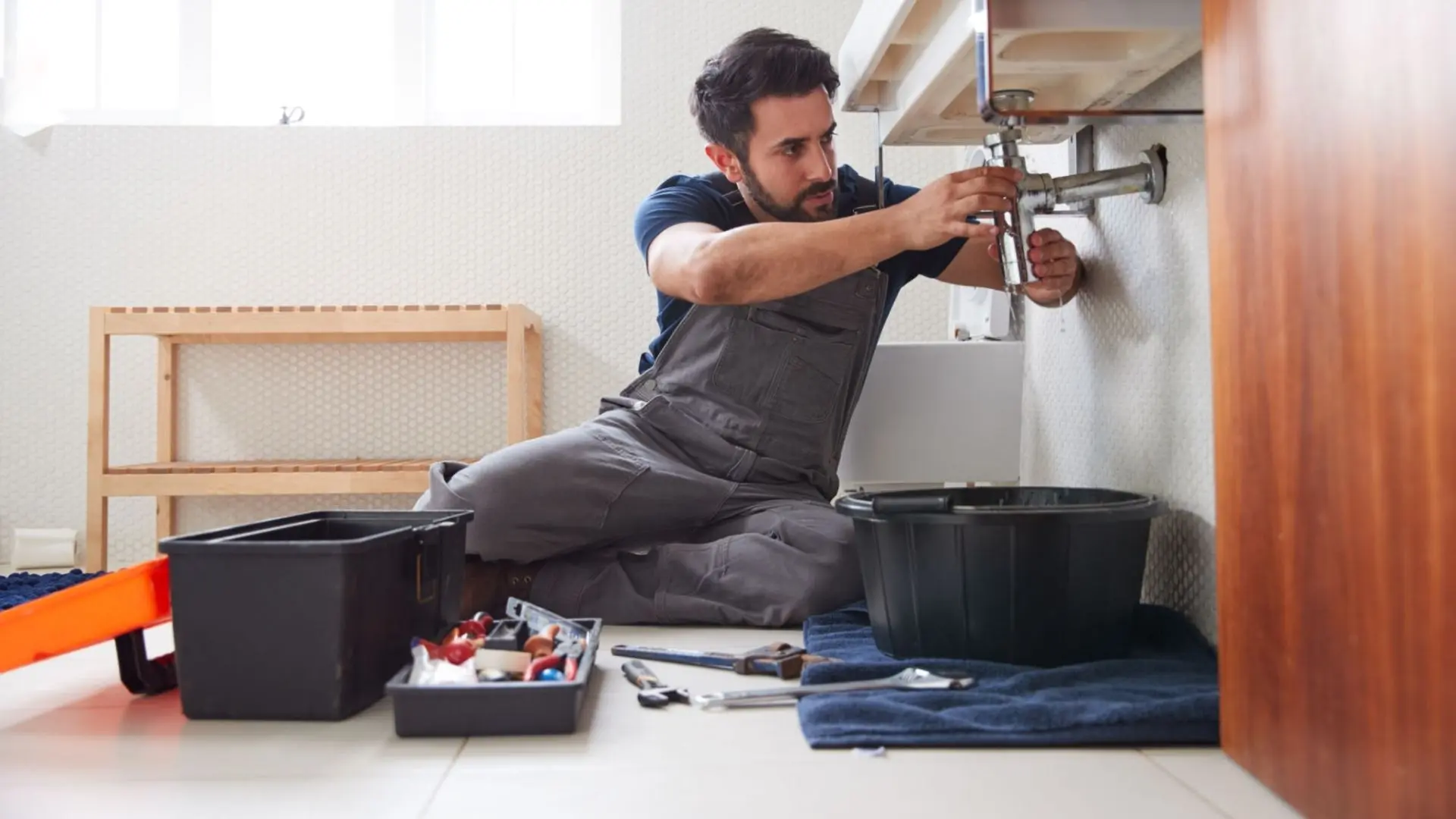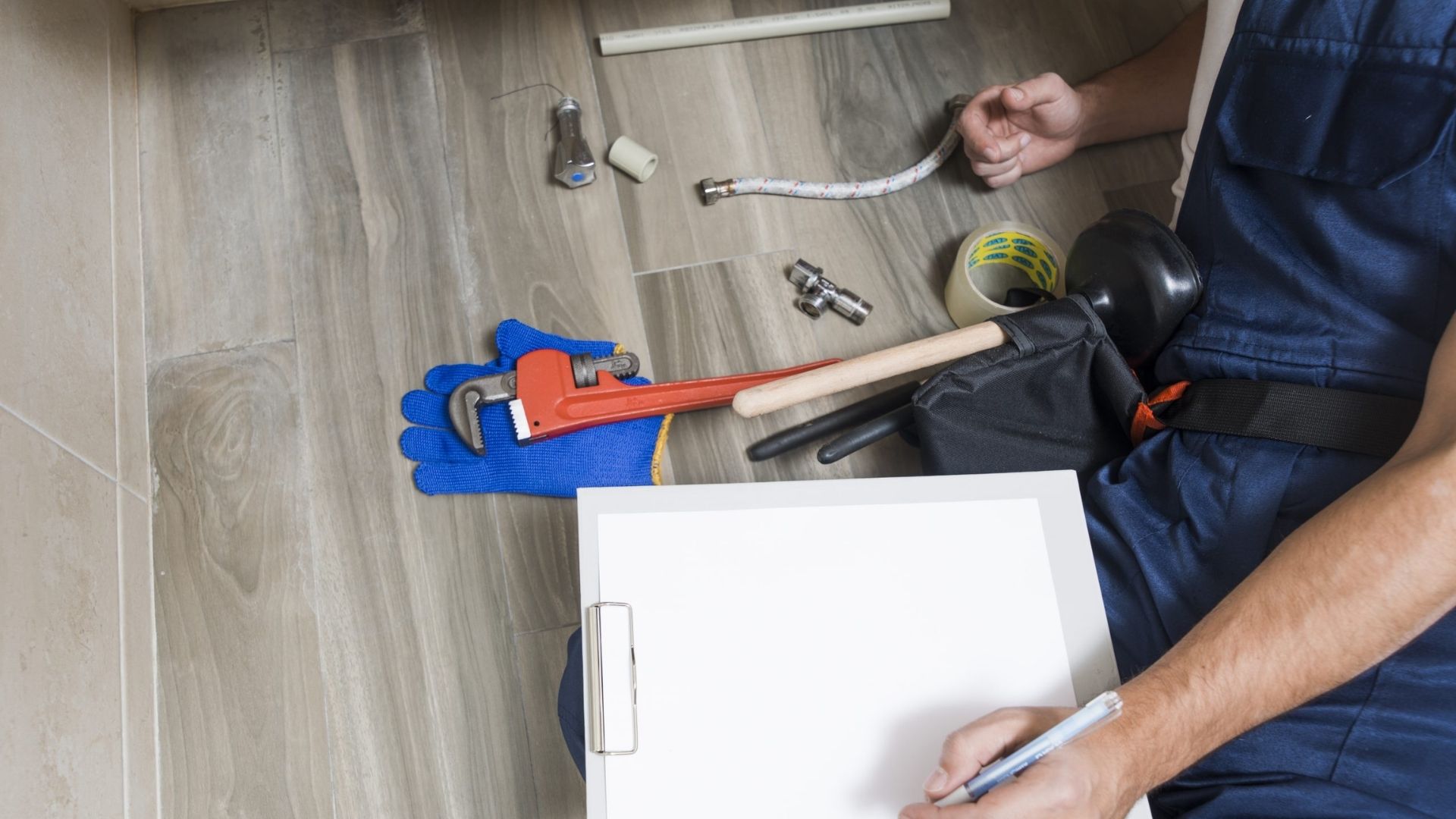If you’re new to strata living or the strata industry, you are perhaps full of questions about this modern way of community living.
While strata schemes aim to make life easier for property owners by fixing existing co-ownership issues, they come with their own set of complications. It’s understandable to feel overwhelmed with all the formalities like legal by-laws, assessments, insurance policies, and strata plans to consider.
In a strata scheme, it can be tricky to figure out what’s common property, like ceilings and boundary walls. When a sudden plumbing problem pops up, it’s crucial to know who’s on the hook for fixing it before it gets worse.
But sticking to the rules is crucial for keeping things peaceful in a strata property. Take your time going through this guide on strata plumbing before making any decisions.
What Is Strata Scheme And Strata Plumbing?
A strata scheme comprises common property and strata lots bought by individual owners. All the owners make up the owner’s corporation (OC) and share the common property, jointly footing the bill and taking responsibility for maintaining the shared areas. These usually include exterior elements like dry wells, stairwells, and gardens.
At the same time, the owners’ corporation is responsible for caring for the parts that are restricted as part of their lot. Your owners’ corporation responsibility and strata scheme can be achieved through a strata manager, building manager, and property manager. On that note, a lot could be a townhouse, apartment, unit, and all its interiors, which include indoor plumbing.
While the strata plumbing responsibility rules may seem straightforward, there are a few complications regarding strata plumbing lines and pipes. Strata plumbing comprises the underlying pipework shared by all the owners, which enables the water to flow in and out of the lots and surrounding common areas. This interconnected plumbing also includes fixtures and fittings.

How Is A Plumbing Issue Assessed?
Plumbing issues can be complex in a strata scheme, as owned lots generally do not have separate pipelines. Instead, the network of pipes runs throughout the strata building, often crossing common properties and owned lots, making it difficult to determine who is liable when plumbing issues arise. A detailed assessment has to be made before concluding.
For instance, a plumbing job like a blocked floor drain or a leaking or burst pipe may cause damage to the owner’s private property or a part of the shared exteriors. Here, a plumbing specialist will conduct a complex liability assessment to determine who owns the portion of the plumbing or the boundary wall that has been compromised like a burst pipe.
This strata plumbing job process usually involves the participation of loss adjusters, legal counsellors, the insurance companies of the OC and any individual owner suspected of causing the plumbing issue.
But first, a specialist is consulted to assess the plumbing issue and diagnose the problem. Once the verdict is out, the legal and financial players will resolve the issue while referring to the applicable by-laws and strata plan. Ultimately, the owner’s corporation or owner may be held liable to pay for repair services and compensate for damages.
Common Strata Plumbing Issues And Who Is Responsible For Them?
Strata schemes offer a modern, convenient way of co-ownership, governed by by-laws and regulations to simplify problem-solving. Whether it’s mould on internal walls or leaking pipes, understanding these common plumbing issues can help manage them efficiently.
In these scenarios, a skilled plumber is hired to investigate the issue and use specialised tools to locate the problem. The professional will then produce a report, which can be used by the owner, corporation, strata managers, and other legal and financial players in disputes and negotiations.
While legal advisors and other specialists are indispensable to making an informed decision, here are some general guidelines about who is responsible for common strata plumbing issues.

1. Burst Pipes
Generally, burst pipes under the property floor are caused by weak infrastructure, freezing temperatures, installation issues, blockages, or high water pressure. The owner’s corporation will be liable for any damages in such cases.
However, burst pipes on the lot, including in the bathroom or kitchen sinks and laundry trough, are identified as the owner’s responsibility. Both instances require a thorough inspection before determining who is liable.
2. Leaking Pipes
Water dripping on your balcony from the apartment above could indicate that your neighbour has a leaking pipe. In most cases, the private owner is held responsible for such pipe leaks and must compensate for any damage. At the same time, water leaking through the ceiling and tiles could be traced back to installation flaws, which are the OC’s responsibility.
Alternatively, if you notice water from a leaking pipe seeping into your property from another lot, the private owner of the other lot may be responsible. But before jumping to conclusions, ensure that the leak is caused by the property’s internal fixtures and not by the plumbing lines installed between shared walls.
3. Leaking Fixtures
Leaks in internal fixtures, such as showers, sinks, baths, and shower taps, are the owner’s liability. However, leaks in interior fixtures due to issues in the infrastructure are not unheard of, in which case the OC will be liable.
4. Mould
Dampness or mould can be traced back to issues in the plumbing, or they may result from condensation on the inside. For instance, the private owner is responsible for damp walls caused by cooking or using a dryer.
On the other hand, the OC is liable for condensation or water penetrating from external walls or the floor, possibly because of flaws in the infrastructure or pipelines.
Understanding Strata Plumbing
Before we wrap things up, we must mention that the information in this guide is only meant to provide a general understanding of common strata plumbing issues. Determining who is responsible for these problems requires meticulous inspection, and the results will vary from scenario to scenario.
If you encounter a plumbing mishap, check updated copies of the common property title, registered by-laws, and strata plans. Consulting with a legal advisor and other professionals helps you make informed decisions.
If you’re a strata manager in need of quality plumbing services or strata management, give us a call at Fixed Today Plumbing. We’re here to help!
On that note, be responsible and stay aware. Until next time!














